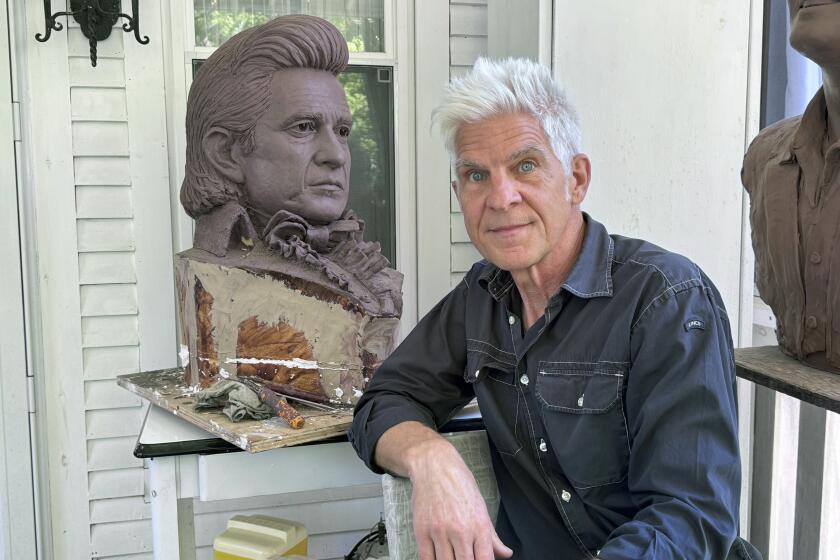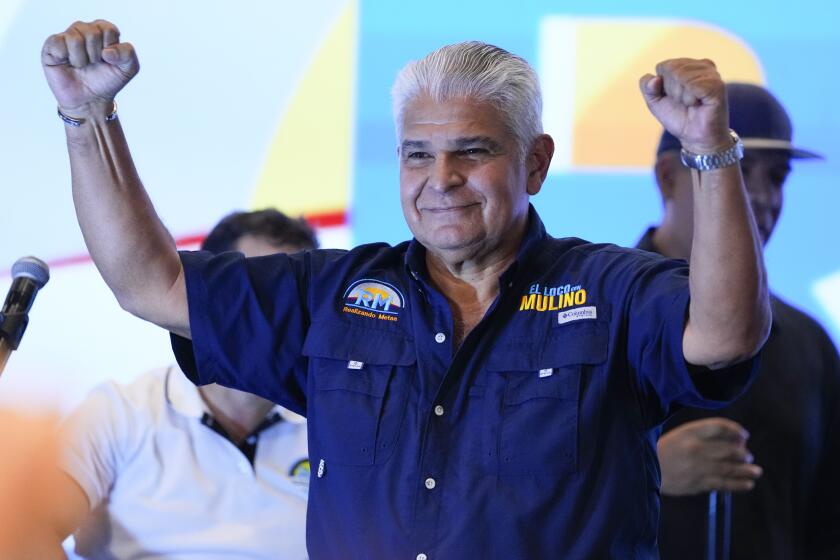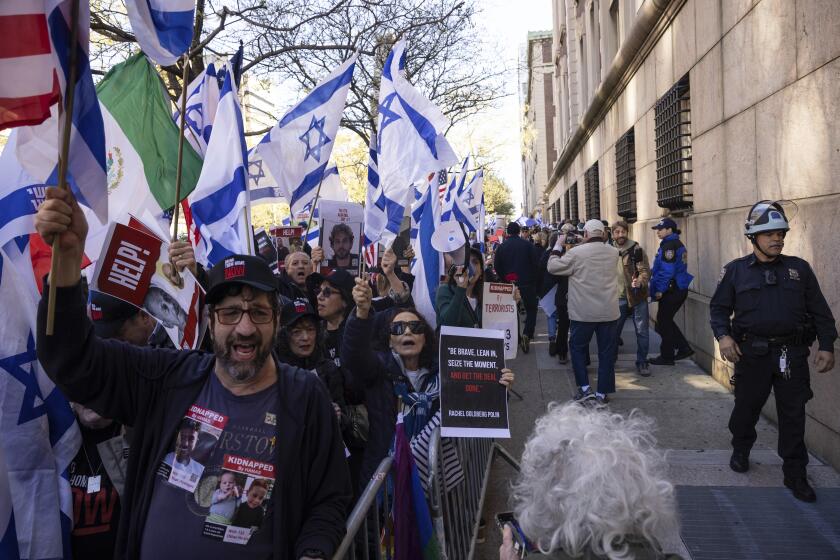Charges dropped against GI sniper
Members of U.S. Army Spc. Jorge G. Sandoval Jr.’s unit hugged him Friday in the minutes after a military court dropped murder charges against him in the deaths of two Iraqis.
His fellow soldiers laughed and wept as the soft-spoken Sandoval told his friends that he wanted to go outside and smoke a cigarette.
It was the first of three major court-martial proceedings involving Sandoval’s sniper team, and the soldiers felt vindicated.
Sandoval faced two counts of murder, two counts of poor conduct and one count of dereliction of duty in two killings, on April 27 and May 11. All but one charge was dismissed. He was convicted of poor conduct in the planting of a detonation wire on a body in the April incident, and is to be sentenced today.
One soldier, Sgt. Anthony Murphy, savored the good news. “It’s been really tough. Today is a good day,” he said.
Murphy bristled at the idea that there was a cloud over their unit.
“What we did was honorable -- what we were trained to do and ordered to do,” he said.
Spc. Joshua Meachum said, “Snipers have no other job but to kill. We don’t shake hands with sheiks. We don’t give candy to kids. We don’t set up a checkpoint. We have one sole job and that is to kill.”
Sgt. Evan Vela, whose surprise confession during testimony Thursday that he had killed an Iraqi in the May 11 incident, saved Sandoval from a possible life prison sentence. Sandoval also was cleared of the fatal shooting of an Iraqi man April 27.
Staff Sgt. Michael A. Hensley emerged as the pivotal figure during the trial. According to witnesses, Hensley in the April incident gave Sandoval the order to shoot a man who had been in a field cutting grass.
The cases have called attention to a “baiting program,” in which snipers were allegedly ordered to plant fake weapons and bomb-making materials, then kill anyone who picked them up.
The Pentagon will not speak publicly about the tactics it uses to protect soldiers from insurgents, but it insists that military practices are within the law.
Military hearings in July alluded to Hensley’s role in possibly spreading the baiting techniques, his attorney said.
--
More to Read
Start your day right
Sign up for Essential California for news, features and recommendations from the L.A. Times and beyond in your inbox six days a week.
You may occasionally receive promotional content from the Los Angeles Times.






